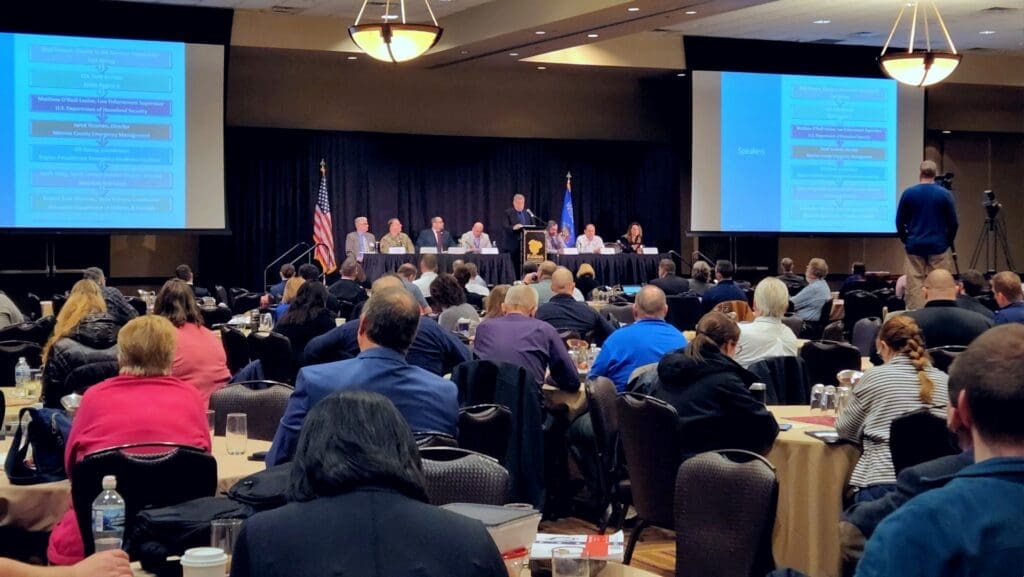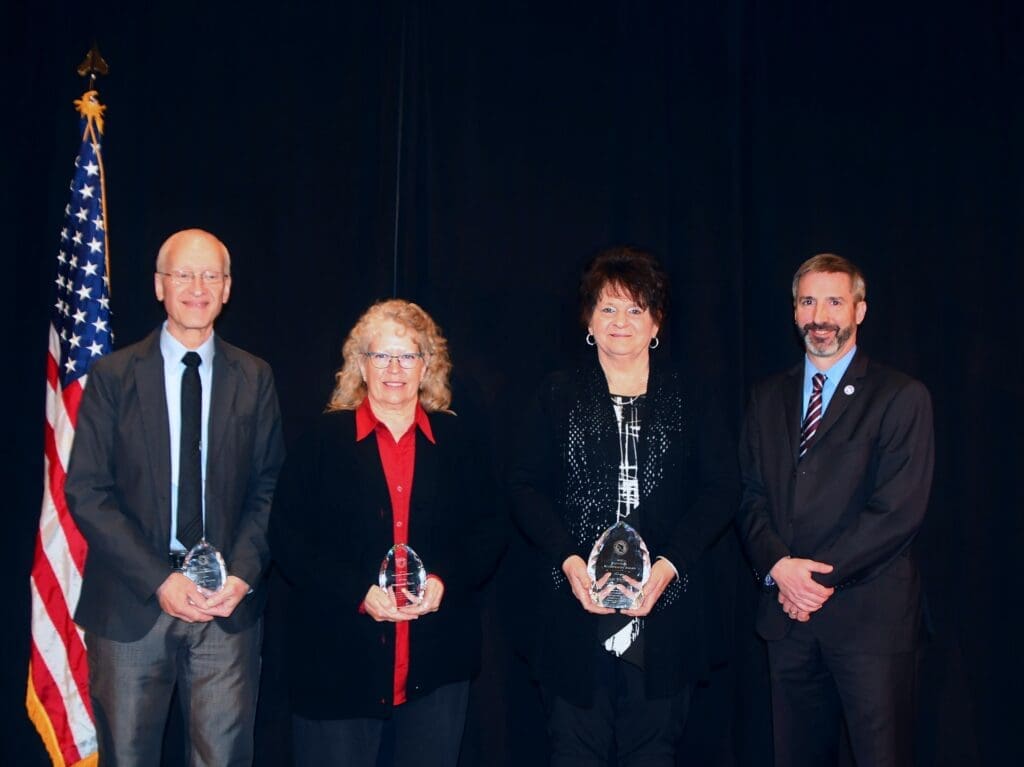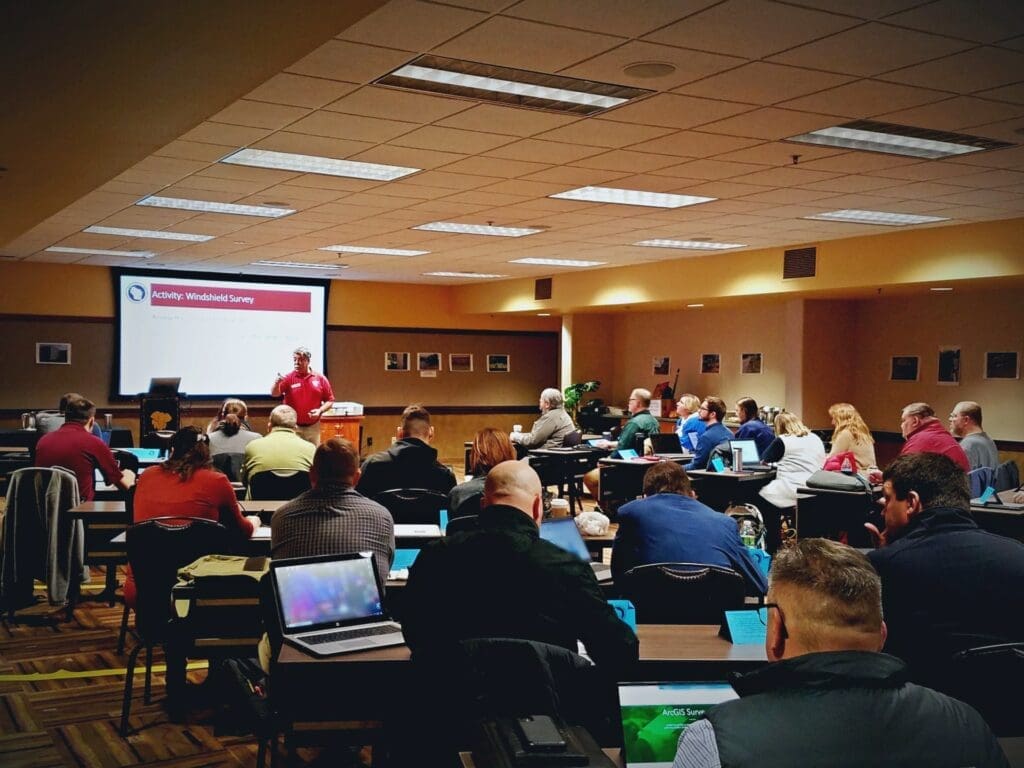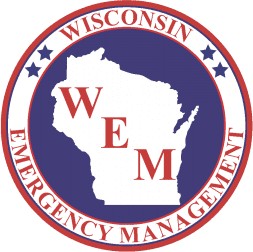
WISCONSIN DELLS, Wis. – Adapting to any emergency and learning skills to manage disasters was the focus at the 54th Annual Governor’s Conference on Emergency Management and Homeland Security. More than 400 attendees representing emergency management, health care professionals, and first responders attended the event held March 7-9 at the Kalahari Resort and Convention Center. The theme this year was “Building Resilience.”
“It’s about taking care of your friends and neighbors, and it’s one of the things I am most honored to do in this position,” said Maj. Gen. Paul Knapp. “We’ve had a rough two years, and I focus on relationships, because we need to support and take care of each other. We use those relationships so that we keep the people of Wisconsin, our friends, and our neighbors safe.”
The annual conference was cancelled last year due to the COVID-19 pandemic. Wisconsin Emergency Management Acting Administrator Greg Engle highlighted how it is time to move forward and said the pandemic highlighted the importance of empowerment in building resilience.
“Networks, partnerships, being compassionate and always empowering those around us are some ways to be successful,” said Engle. “I look forward to working with you together as we build a more resilient Wisconsin.”
The conference also reminded everyone about the importance of staying connected. With some COVID-19 restrictions recently lifted, it was a chance to be with peers in-person, instead of meeting virtually.
“Being able to talk to people directly, having face-to-face contact, and more socialization is great for our well-being,” said Wisconsin Emergency Management Association President Keith Hurlbert. “It’s good having conversations that are more natural and it’s not always on emergency management. Sometimes you can’t do that in a business environment but can do it in this setting.”
During a disaster, Wisconsin often looks to its partners at the federal level to help its citizens respond and recover. Over the past two years, Wisconsin worked closely with the Federal Emergency Management Agency (FEMA) during the COVID-19 response, along with other aspects of emergency response and recovery operations.
FEMA Region V Acting Administrator Moises Dugan mentioned the agency’s upcoming goals, including having a more prepared nation by increasing emergency management capabilities.
“The bedrock of our mission remains constant, and that is helping people before, during and after a disaster,” said Dugan. “Our ability to address emerging threats is rooted in the strength of our emergency management workforce, our partnership, and our interconnectivity. We must meet and work together at all levels to effectively meet our disaster operational responsibilities while maintaining critical steady-state functions.”

The conference also was a chance to recognize those who have dedicated their work to help Wisconsin communities weather any storm and bounce back from disasters. The inaugural Wisconsin Emergency Management Governor’s Conference Awards honored three individuals who have gone above and beyond in their contributions to improving public safety.
The Innovation Award went to Ashland County Emergency Manager Dorothy Tank, for her use of FEMA funding to study how the degradation of watersheds has impacted repeated flooding events in her county. The study will help not only Wisconsin. It will help the country gain a better understanding of how to mitigate flooding risks.
“I am so honored and very overwhelmed and humbled. Words can’t describe how I feel receiving this honor during the inaugural rollout of these awards,” said Tank. “I have a lot of passion for what I do, and that passion is what I believed in, fought for, still fight for, and work each day on the ground for the best interest of the county.”
The Service Award went to Gary Timm for his dedication to making sure a critical lifeline is ready to alert people across the state about danger in their area. Timm’s knowledge of the Integrated Public Alert and Warning System (IPAWS) helps communities be ready before the need to even send out a message occurs.
“I am truly honored to receive this award, and it’s so touching to me that people who work in emergency management thought of nominating me,” said Timm. “All these people are the true heroes, and my reward is just helping them achieve their mission by having IPAWS available.”
The Lifetime Achievement Award honored former Columbia County Emergency Manager Kathy Johnson. She dedicated 30 years of service to the people in her county. During the COVID-19 pandemic, Johnson led the response for the county and worked with the state to procure personal protective equipment, coordinated testing and vaccine sites, and made sure people and businesses were informed.
“In the 30 years I have worked in emergency management, never have I thought I would receive something like this, it’s almost indescribable, “said Johnson. “I have met so many wonderful people over the years, first responders, municipality leaders, and people in my office. There’s a lot of people that have become true friends and changed my life in a lot of ways.”
From responding to cyber criminals to Wisconsin’s role in resettling Afghan evacuees and learning leader lessons from the battlefield, those who attended the conference will take the lessons they learned back to their communities and families. They know they are not alone as everyone works together and supports each other in their common goal: Making Wisconsin, better, stronger, and more resilient.


